New Mixed-Breed Bear Species Discovered—Meet The Pizzly!
The Arctic has been home to strange-looking bears for some time, but it wasn’t until 2010 that David Kuptana of Victoria Island encountered one. Its unusual characteristics made it clear that this was not a regular polar bear, leaving scientists to wonder what it was precisely and how it got there.
However, they soon made a shocking discovery, unraveling the mystery of this mythical animal. Let’s take a look.
Bear Visits Remote Island in the Canadian North
The remote island of Victoria in the Canadian North, located along the Arctic Circle, is no stranger to icy cold temperatures and long winter nights. Despite being the ninth-largest island in the world, it has a population of just 2,000 people, one of them being David Kuptana.

Source: Getty Images
It’s remarkable that a bear managed to encounter the inhabitants of this Idaho-sized isolated region. Kuptana’s strange bear story is one of the many tales of life on the island, and it’s sure to be remembered for years to come.
Polar Bears, A Cultural Connection in the Arctic
For northern natives, relationships with polar bears is much more than what people see in photographs or at a zoo. Not only are they hunted for their meat, but their fur is used to line clothing for this frigid climate, including boots and pants.
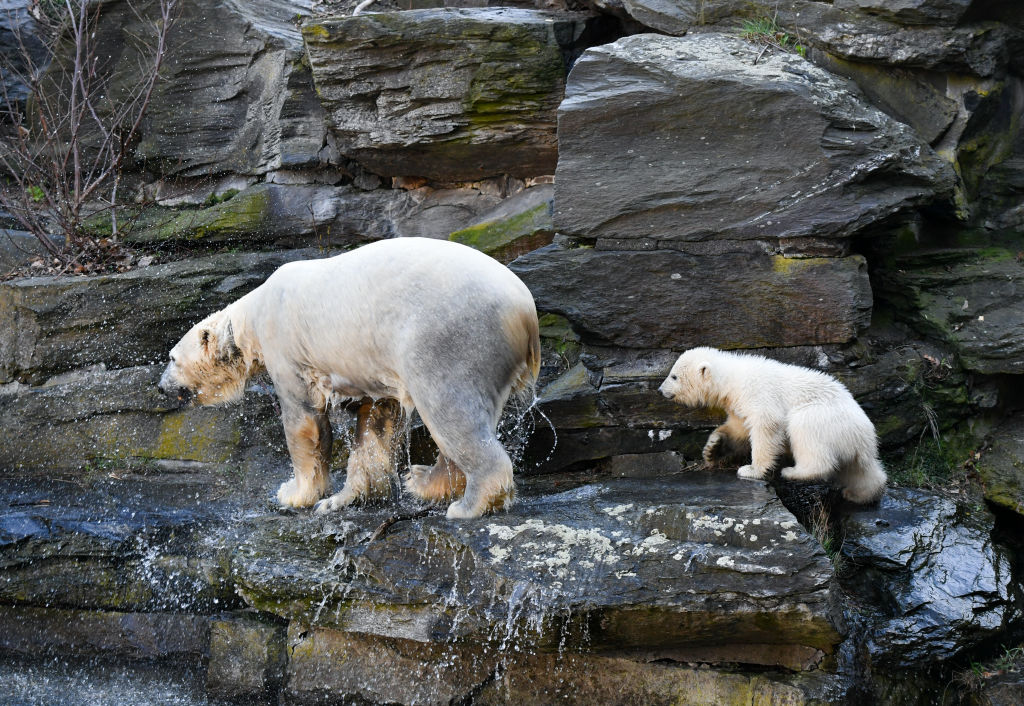
Source: Jens Kalaene/Getty Images
Not excluded from climate change, the Arctic is warming up and polar bears are spending more time on land, bringing them closer than ever before to humans. It was against this backdrop that David Kuptana made a remarkable discovery.
The Magic of Ulukhaktok, a Village Beyond the Arctic
David was born in the remote coastal community of Ulukhaktok, a village with only a few hundred inhabitants far north of Montana. Ulukhaktok is situated along the Northwest Passage, the northern sea route that connects the Atlantic and Pacific oceans.
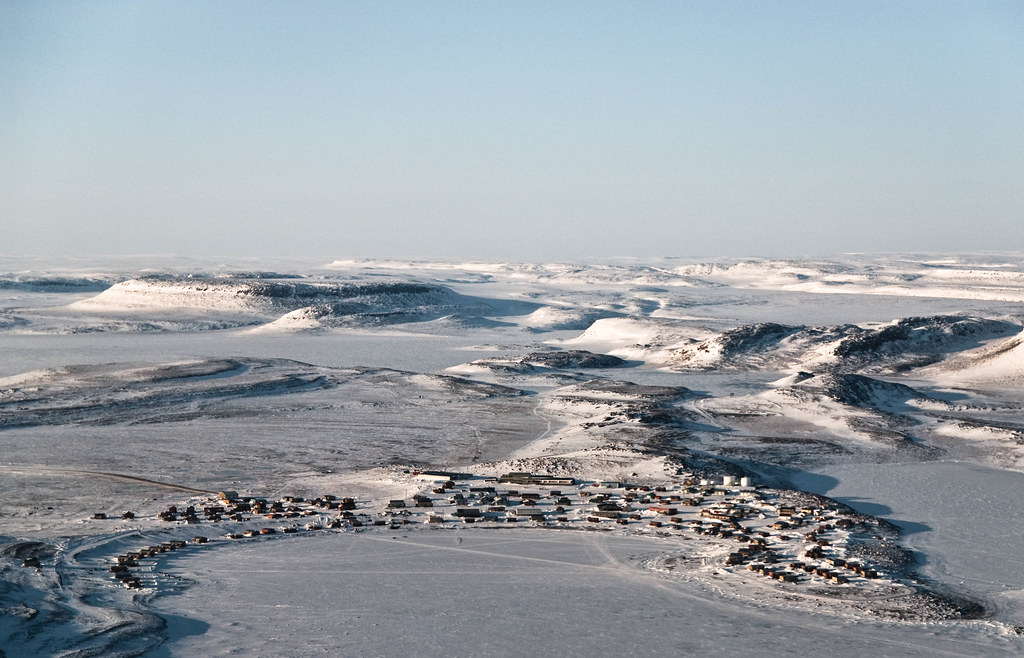
Source: Nic Krischner/flickr
Due to the secluded location, groceries are incredibly expensive and the cost of living is very high. Therefore, many people here rely on the local wildlife, including polar bears, for sustenance. Despite the challenges, Ulukhaktok is still a magical place, full of stunning scenery and captivating culture.
The Making of an Unforgettable Encounter
Kuptana has been a long-time hunter in the Ulukhaktok community. On one particular hunting trip, he and his wife set out as they routinely did, driving their snowmobiles to an island cabin. Little did they know, this trip would be unlike any other.

Source: Scopio Images
For David, this was an experience he would never forget. With the community receiving around a dozen polar bear hunting tags each year, David was no stranger to the wildlife. Yet, on this peculiar day, he encountered something extraordinary.
Stumbling Upon Prior Inhabitants
David and his wife’s trip got off to a rocky start. Upon arriving at the cabin, it was obvious that it had been broken into by an animal scavenging for food. Out of luck, they continued on to the next cabin, only to find that it had been ransacked, too!
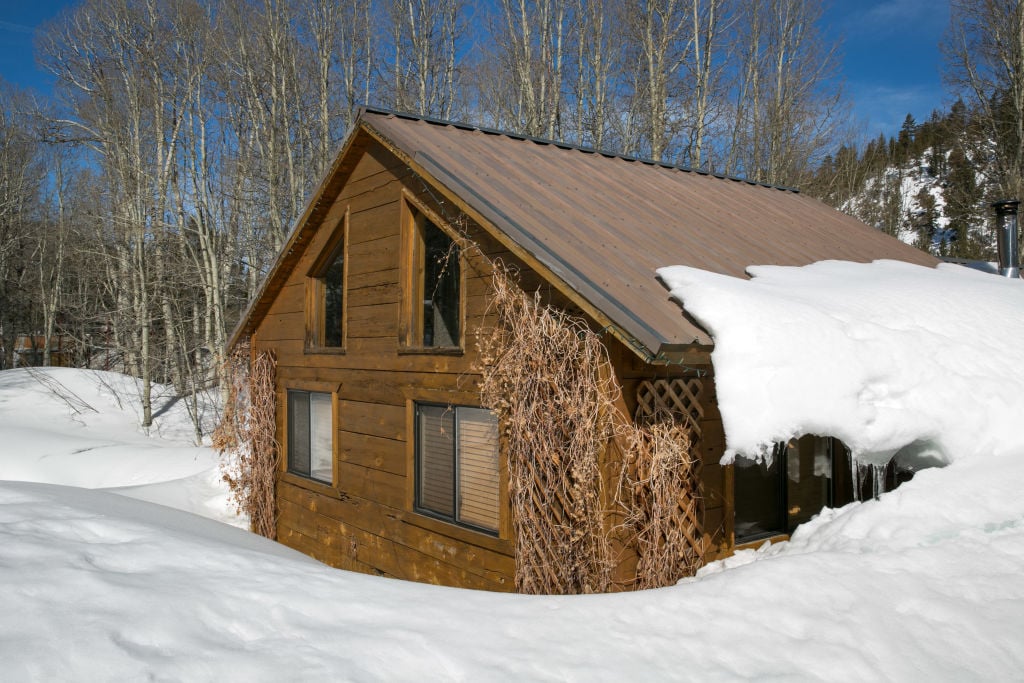
Source: George Rose/Getty Images
Bear tracks were spotted around the cabin, accompanied by a broken window and a mattress dragged outside. It was clear that they would have to look elsewhere for appropriate lodgings.
David and His Wife Encounter an Unexpected Visitor
David and his wife were no strangers to moving around. After encountering five cabins that had been broken into by a mysterious intruder, they decided it was time to look elsewhere for shelter. But, when they arrived at the sixth cabin, they were met with an unexpected surprise.
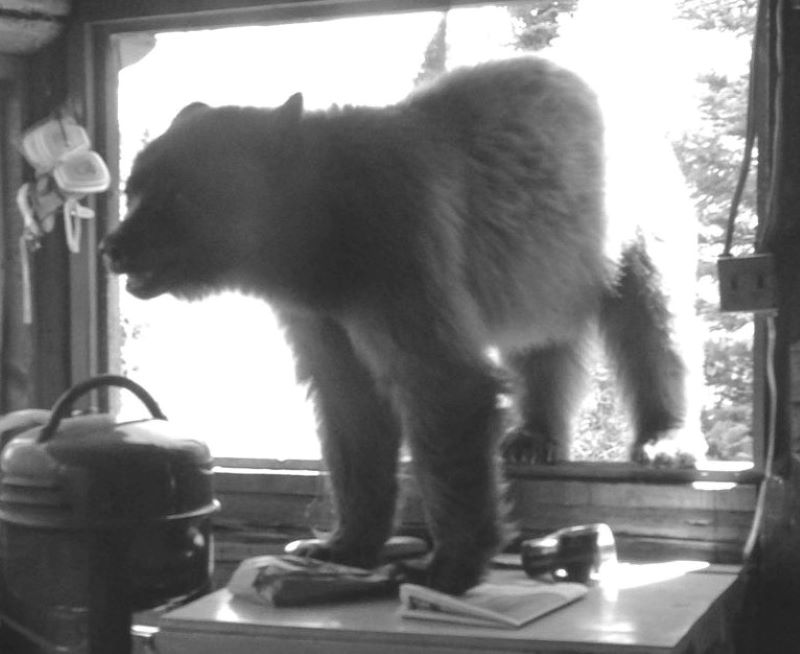
Source: realschezch/Twitter
Instead of the usual chaos and destruction caused by a polar bear that had vacated, they found the animal still in the cabin! But, it appeared a bit different from a polar bear. Was it a new and improved version? Or something else entirely?
Polar Bears Adapting to a Changing Climate
Polar bears are some of the most resilient creatures on Earth, living in the frigid conditions of the Arctic. These majestic beasts depend on the sea ice for hunting seals, their main prey. But as the climate warms and the ice caps melt, polar bears are forced to wander onto land and rely on their fat reserves for sustenance.
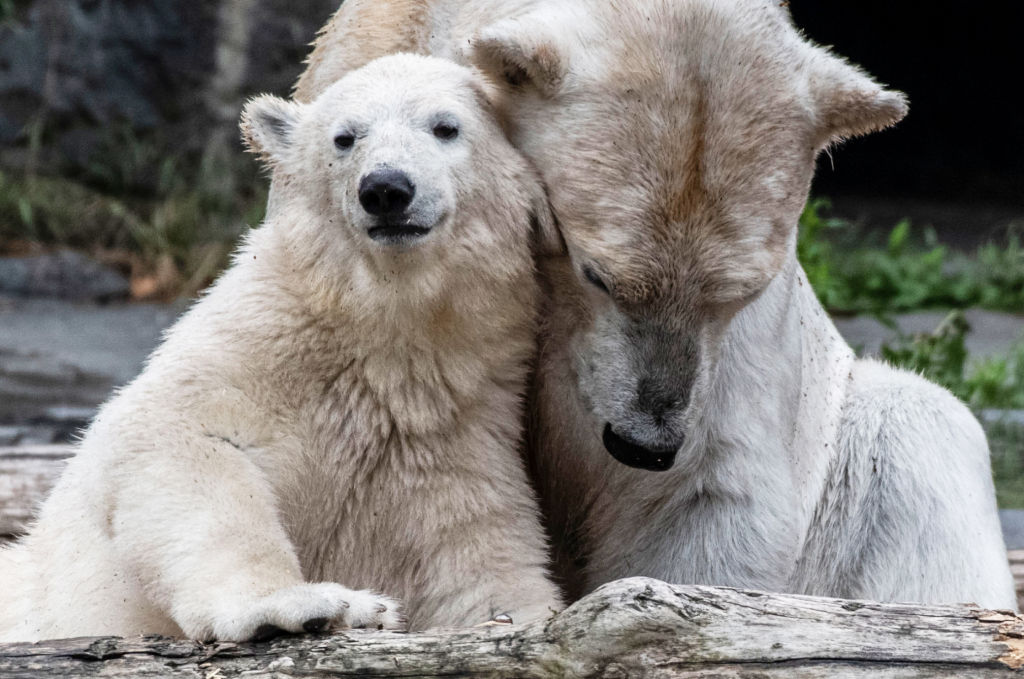
Source: Paul Zinken/picture alliance via Getty Images
Although the Arctic environment is rapidly changing, polar bears have been able to adapt in order to survive. With their impressive swimming abilities, they have managed to establish a territory near the shoreline.
Grizzlies on the Move
As temperatures continue to rise, grizzlies in northern Canada also face a challenge—their habitats are changing and their food supply is becoming scarce. The grizzlies, who have traditionally stuck to the mainland subarctic forests and tundras, must now consider a move if they are to survive.
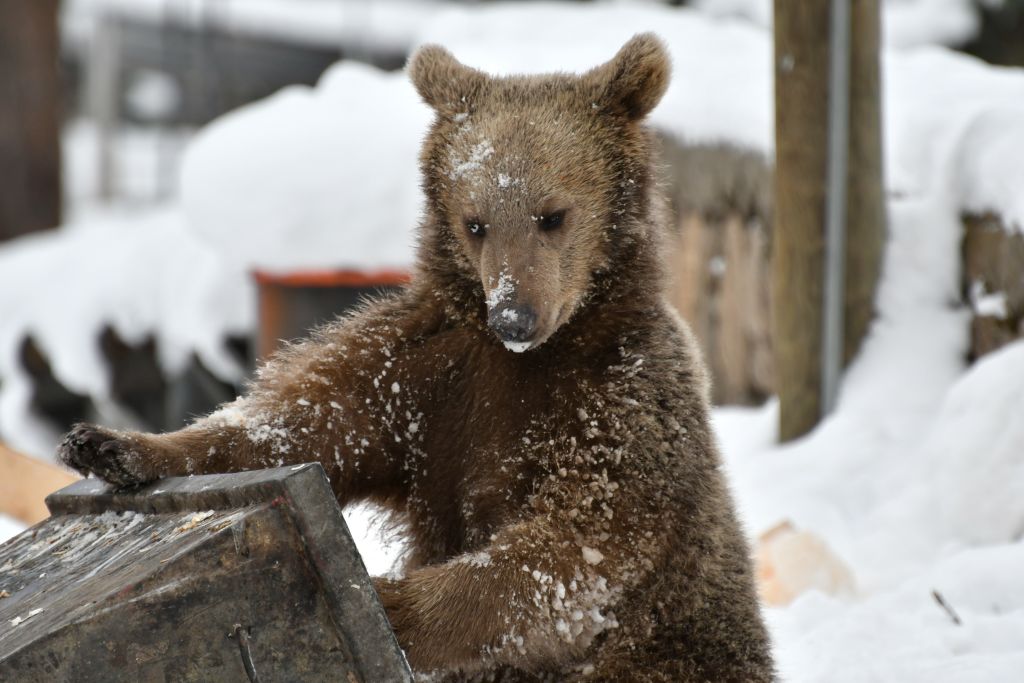
Source: Huseyin Demirci/Anadolu Agency/Getty Images
Though these majestic creatures have long been found in North America, Europe, and northern Asia, they may need to find a new home if they are to continue to thrive. With their future up in the air, these grizzlies may have to consider alternative habitats.
A Changing Territorial Landscape
Both species are migrating as the climate crisis intensifies. Polar bears are now spending more time on the mainland and grizzlies are making their way up north. After hibernation, the male grizzlies go across the ice in search of food, while the females remain stationary.
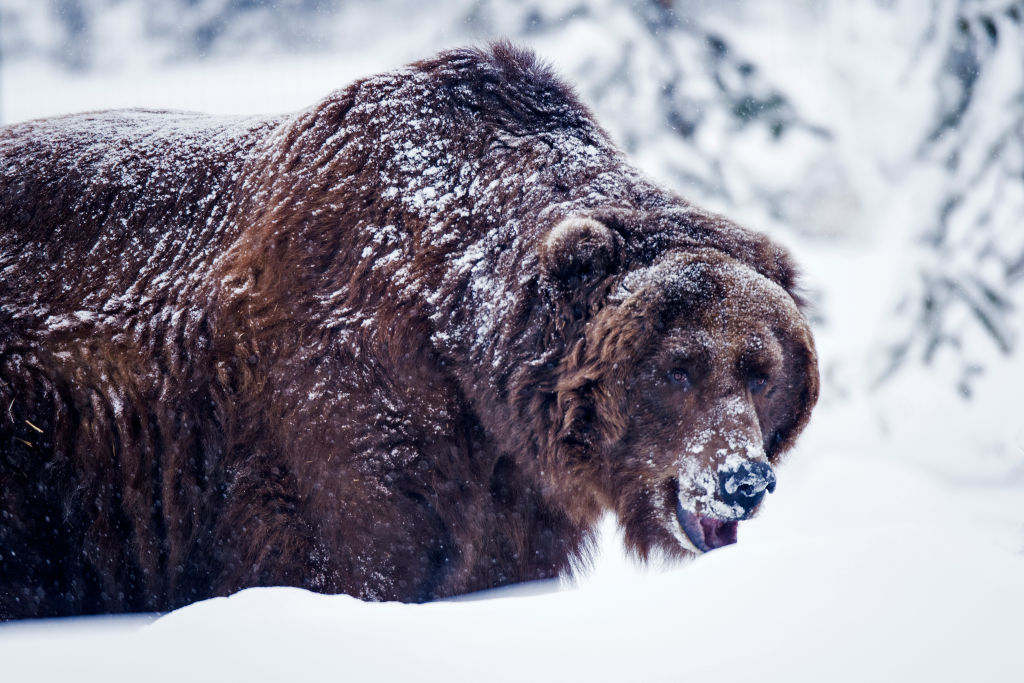
Source: Prisma by Dukas/Universal Images Group via Getty Images
Consequently, the grizzlies are slowly encroaching on the polar bear’s traditional territory, making the territorial landscape look completely different. With two powerful species competing for the same territory, it will be interesting to see what shakes out.
Pizzly Bears: A Beary Unique Hybrid
Grizzlies and polar bears are two of nature’s most fascinating animals, each perfectly adapted to their own habitats. But what will happen if they begin to cross paths and breed with each other? Well, imagine a bear with a boxy head, fur-covered feet, and a beautiful coat of white and brown fur—that’s right, the “pizzly” bear!
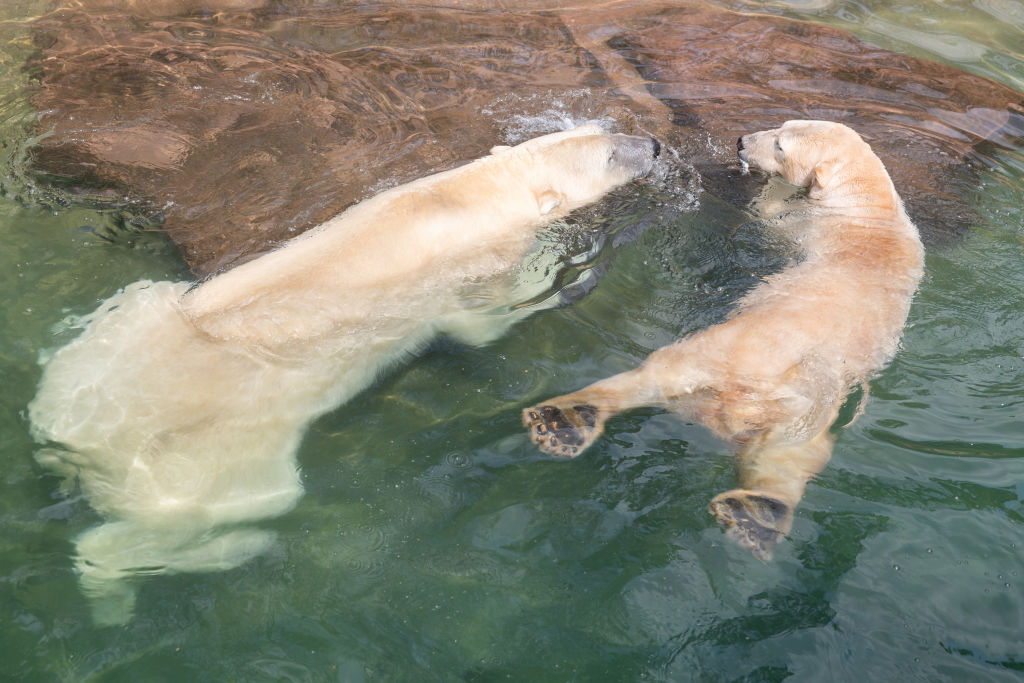
Source: Daniel Karmann/picture alliance via Getty Images
With the best of both worlds, this hybrid would be perfectly suited for both land and sea, ready to take on whatever nature throws its way. Who knows, maybe we’ll one day see these amazing creatures in the wild! Now back to the story.
Acting Bravely to Save an Unusual Bear
David and his wife were taken aback when they stumbled across the unusual bear at the sixth cabin they entered. Its blonde fur, dark paws and eyes were a strange sight. With these features, it wasn’t a polar bear, but it was still a wild bear.
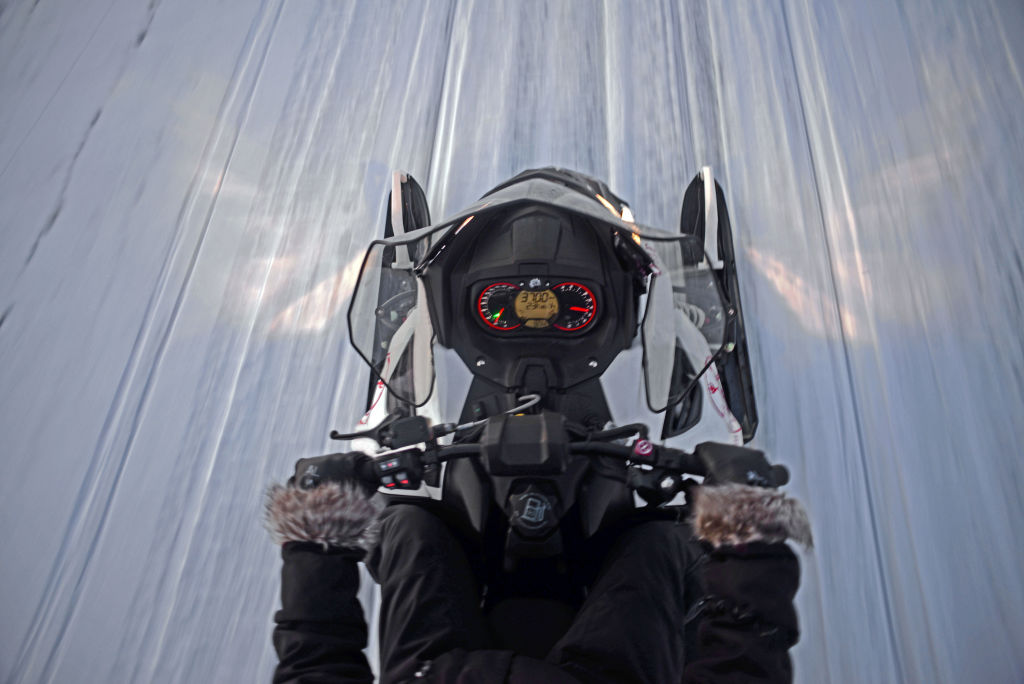
Source: VW PICS/Universal Images Group via Getty Images
When the couple got close, the bear ran away. David pursued it on his snowmobile, assuming it was a grizzly bear. He was worried it might endanger his community, so he acted quickly.
Unbelievable Discovery: What David Found in the Woods!
David was on a mission when he shot the strange looking bear and took it to the local government office. He’d never seen a grizzly before, so he was surprised when the officer inspected the animal and declared it was neither a polar or a grizzly bear.
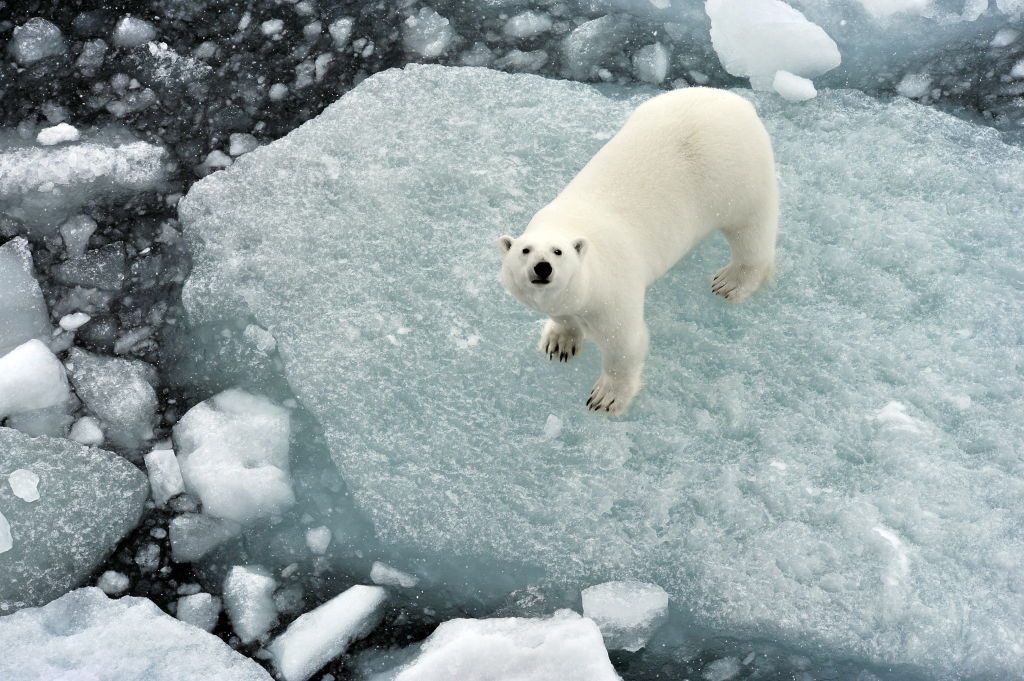
Source: Lev FedoseyevTASS via Getty Images
He couldn’t believe his ears when he heard the officer’s verdict—it was a crossbreed between two different species. David had made a rare and remarkable discovery in the woods that day!
Uncovering the Mystery of Ulukhaktok's Hybrid Bear
When the officer from the Ulukhaktok community reported the possible hybrid bear, the government took action. They sent the animal’s DNA for testing, and the results were astounding. It turned out that 20 of these bears had been bred in captivity, and two of them, named Tips and Taps, were living at Zoo Osnabrück in Germany.
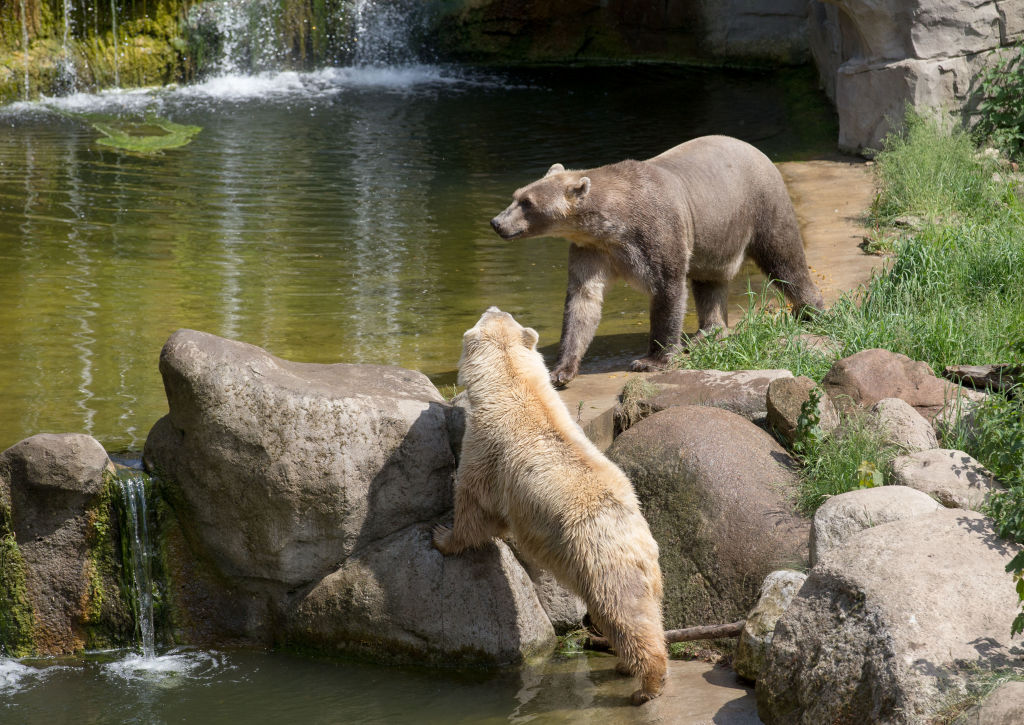
Source: Friso Gentsch/Getty Images
What was even more remarkable was that the cubs’ parents had been kept in the same enclosure for 24 years before they mated, leading to the two hybrids. But the big question remained—was the bear in Ulukhaktok the same breed as Tips and Taps?
Hybrid Bear Spotted in Canada
Back in 2006, an incredible discovery was made on Banks Island, Northern Territories, Canada. A hunter spotted a wild hybrid bear, which was later confirmed to be part polar bear and part grizzly! It was a remarkable find, as people had been talking about bears of unusual color living close to the polar bear territory for some time but there had never been any DNA testing to confirm what they were.
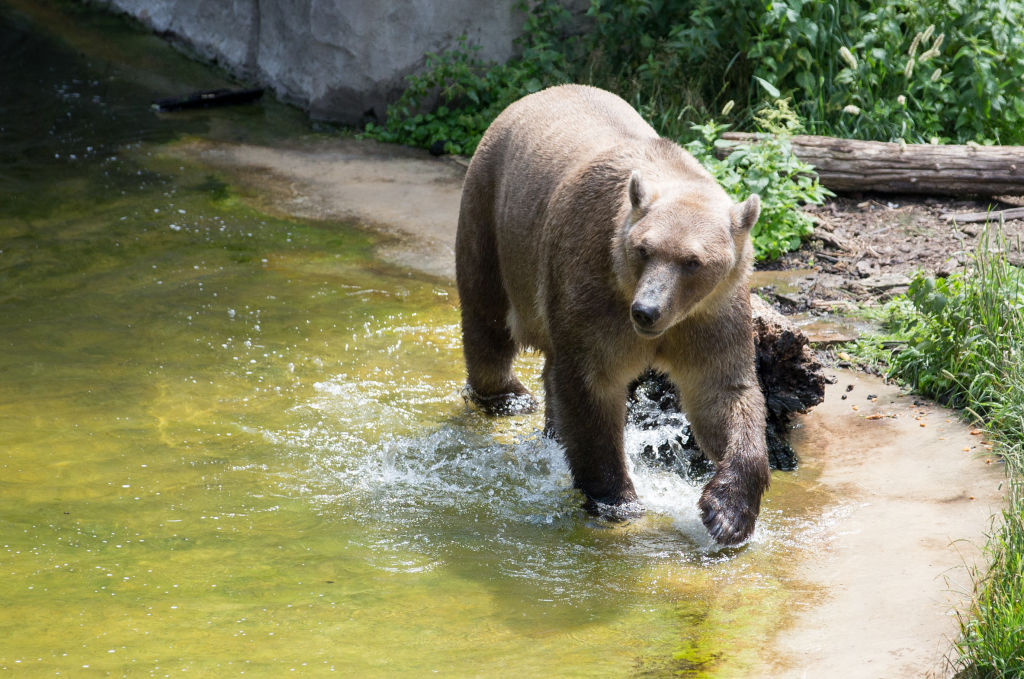
Source: Friso Gentsch/Getty Images
Even though it was a tremendous discovery, scientists were still skeptical, believing it to be a freak occurrence. However, it showed that anything is possible in the animal kingdom!
A Beary Special Courtship
Then in 2016, a hunter in Arviat, Canada again discovered something extraordinary: a hybrid of two species of bear. This was a remarkable discovery, especially since it was previously believed that bears of different species could not interbreed.
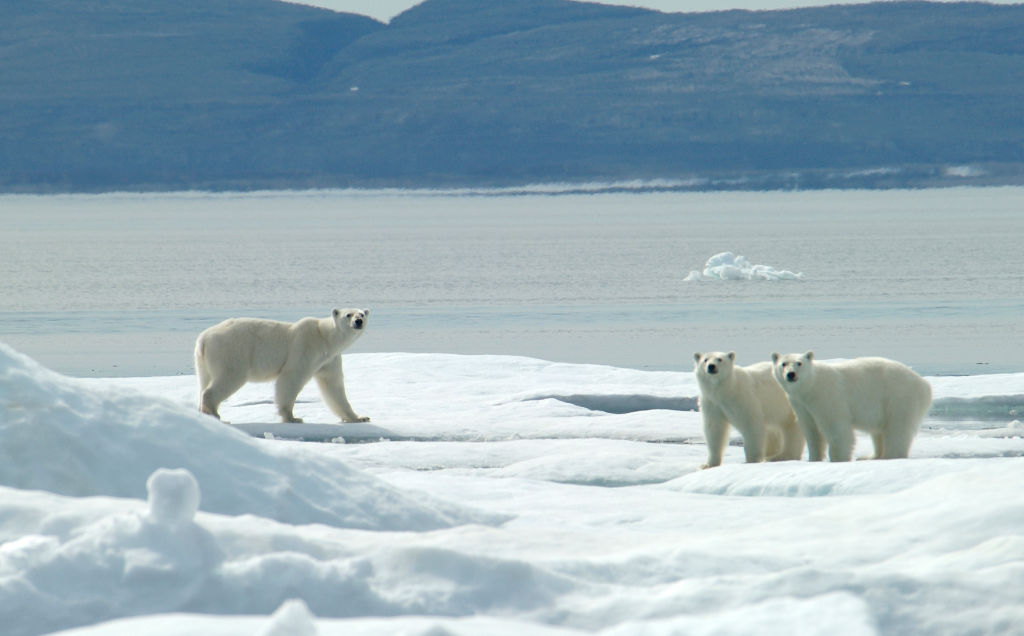
Source: Dennis Fast/Getty Images
Scientists now hypothesized that climate change was bringing the two bear species closer together, and the bears were even spending days courting each other—something that usually ends in a fight when different species are involved. This discovery was a surprise to everyone and a reminder of the impact of climate change.
Mother Nature's Unique Creation
A remarkable feat of evolution is the hybridization of two bear species – polar and grizzly – to form the pizzly bear. Scientists believe that this mix of two species was nature’s way of adapting to the change in northern temperatures. The pizzly bear is a unique creature possessing traits of both its parent species, such as long claws and somewhat hairy feet.
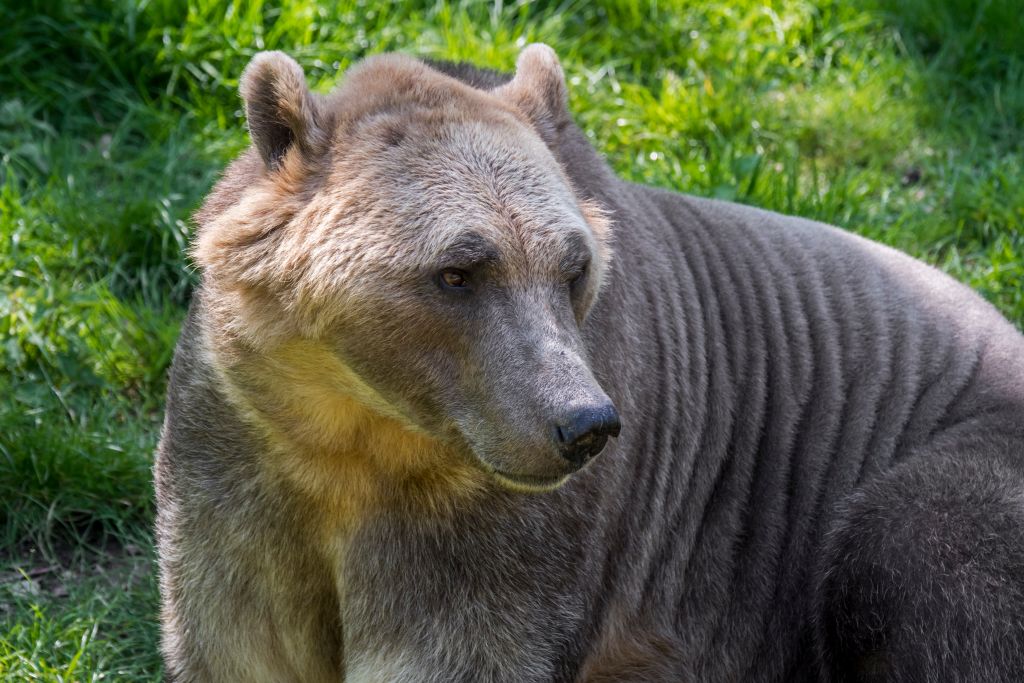
Source: Philippe Clement/Getty Images
Unfortunately, these traits are not suitable for both polar and grizzly bear habitats. Additionally, its fur is partially hollow in some areas, making it difficult to blend into its surroundings. Despite its challenges, the pizzly bear remains an astonishing example of nature’s incredible ability to adapt.
DNA Tests Reveal Something Surprising
So when David’s community encountered a mysterious bear, government officials suspected it was a simple hybrid. But the DNA results were even more astonishing—the mother was a pizzly and the father was a grizzly!
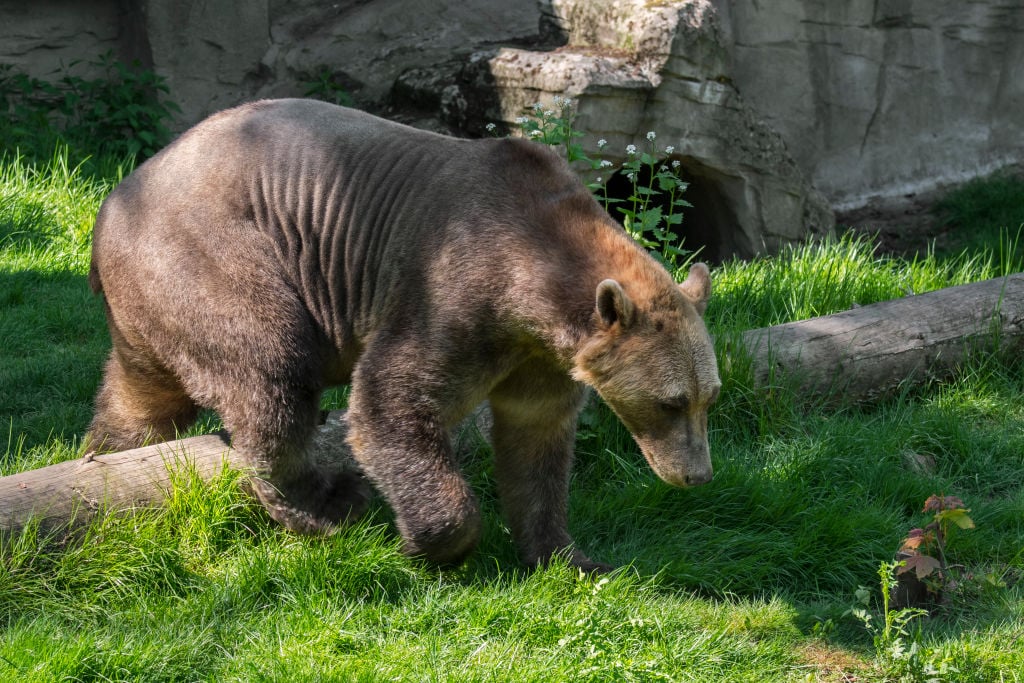
Source: Philippe Clement/Getty Images
It was remarkable to find this rare hybrid, and even more so to discover that it could reproduce. But how did this species come about?
Finding Interspecies Love
Thousands of years ago, grizzlies and polar bears had already found their way to each other’s hearts! Though they were once thought to be two distinct species, recent findings have shown that they have been sharing their DNA with each other since time immemorial.
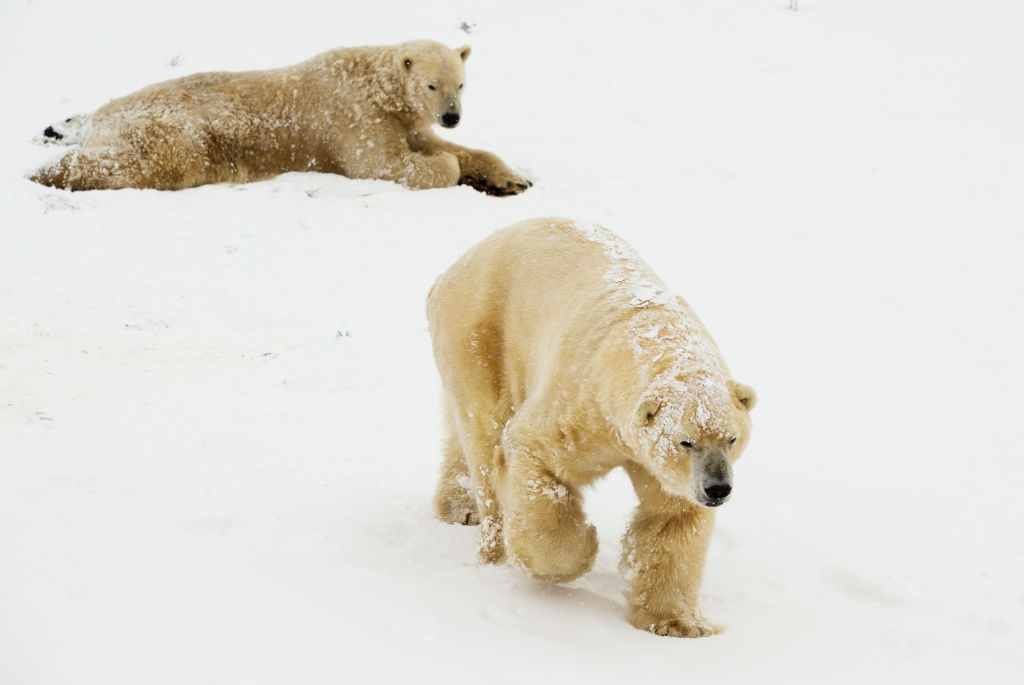
Source: Danny Lawson/Getty Images
Today, both bear species have around 10% of the other’s DNA in them. This incredible interspecies love story culminated in 2006 with the first confirmed hybrid of a grizzly and polar bear. So while the modern hybrids are a result of multiple lineages, it seems like grizzlies and polar bears have been in love for centuries!
The Unforgettable Tale of Mama Polar Bear 10960
It was 2017 when the extraordinary tale of Mama Polar Bear 10960 began to unfold. After extensive DNA testing, it was revealed that all wild pizzly bears could be traced back to one specific mama: 10960. But what made her story so peculiar was that she had mated with two separate grizzlies, having a total of three litters with only one to three cubs in each.
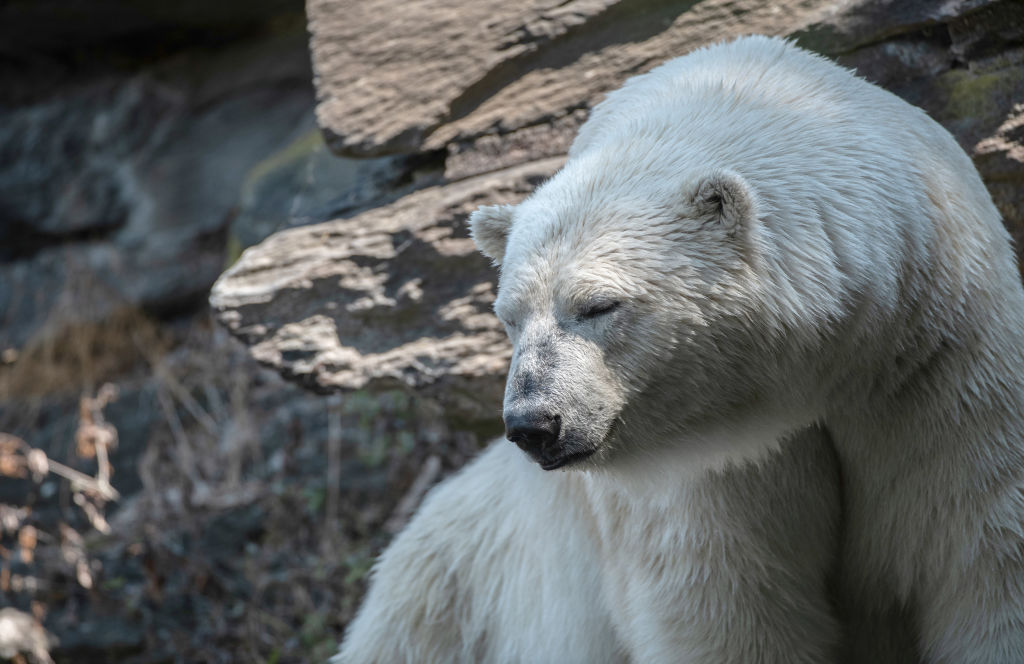
Source: Paul Zinken/Getty Images
Even more intriguing was the fact that 10960 was mating with grizzlies and not other polar bears! What could have been the reason for this? Was it the changing climate or something else? We may never know the full story, but 10960’s legacy lives on.
Unusual Mating Ritual of Polar Bear 10960
Polar bear 10960 has made an incredible mark on the scientific community with her one-of-a-kind mating rutual. Scientists aren’t entirely sure why her mating choice was grizzly bears, however, when female polar bears are ready to mate, their feet give off a strong smell.
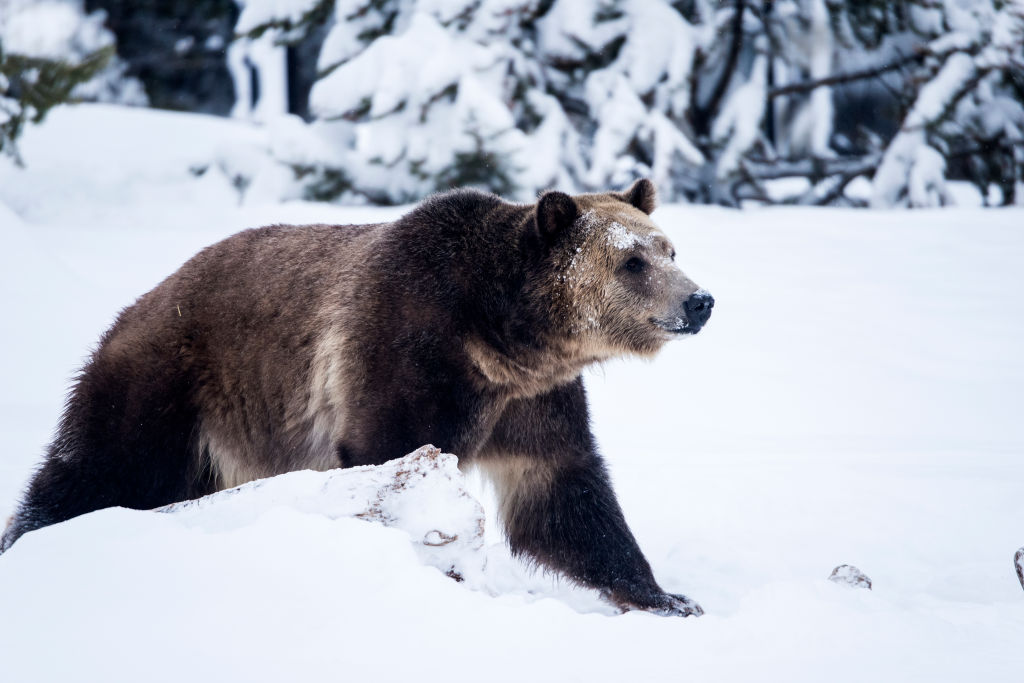
Source: Prisma by Dukas/Getty Images
By walking through the snow and leaving smelly tracks, males tend to follow. With 10960, it appears she had a type, as she mated with the two grizzlies multiple times, years apart. An incredible feat, indeed!
The Pizzly Family Tree
Scientists were surprised when they learned that all pizzlies are part of one family. An investigative journey into the family tree of the species led to a shocking discovery: the daughter of polar bear 10960 mated with the same two grizzly bears as her mother, making them the grand-bears of the species.
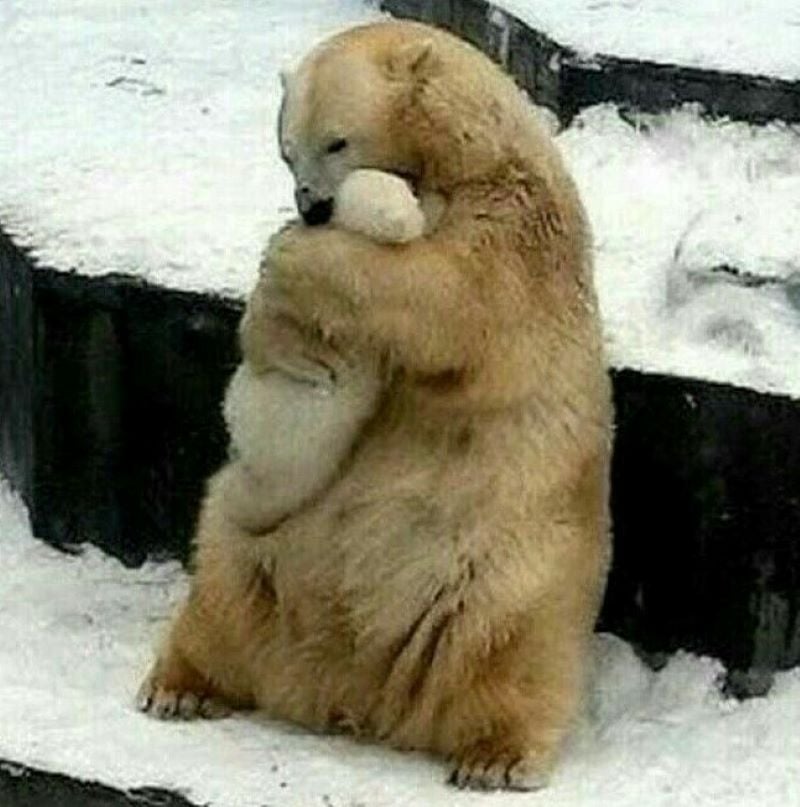
Source: Kateri Rein/Pinterest
This unexpected twist revealed that the mysterious bear found by David was actually the grand-bear of polar bear 10960, confirming the familial connection between the grizzly and polar bears. Talk about a bear version of Game of Thrones!
A Unique Set of Traits
The pizzly has distinct characteristics that make it stand out from its parent species. Instead of getting the best of both worlds, they are unsuitable for either of their parent species’ environments.
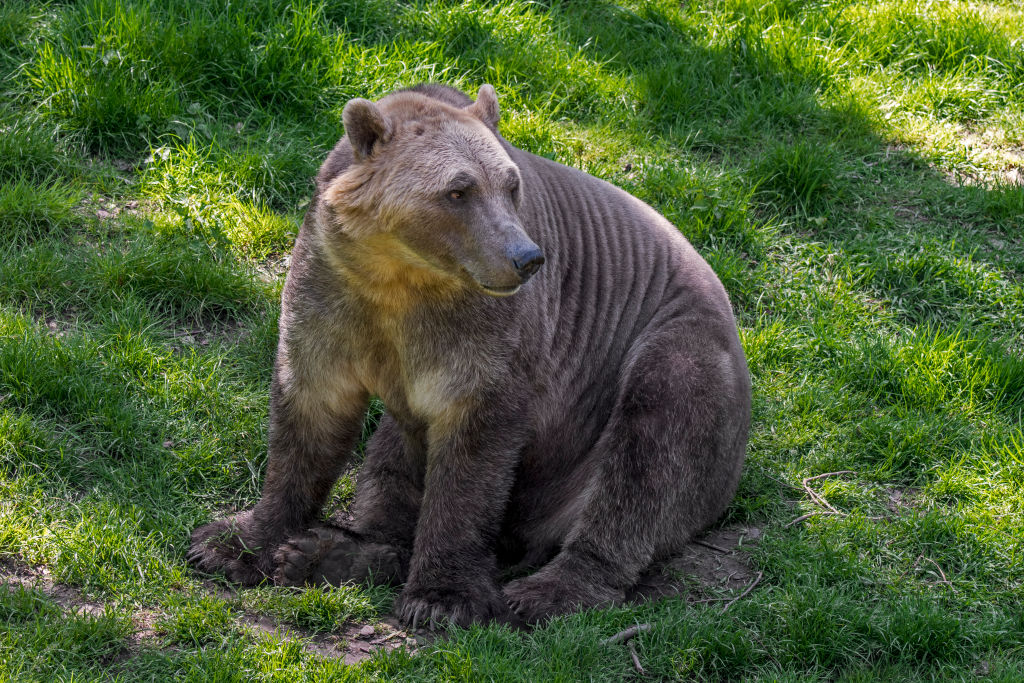
Source: Philippe Clement/Getty Images
Pizzlies have light-colored fur with dark paws and a short tail, and are larger than grizzly bears, but smaller than polar bears. They have a long neck like a polar bear, and back humps like a grizzly.
The Mysterious Personalities of Wild Hybrids
Very little is known about the personalities of wild hybrids, which is why researchers are looking to Tips and Taps for answers. Both the German hybrids were born in captivity, however, their playtime activities seemed to mimic that of their wild polar bear father. When playing, the pair likes to stomp on their toys.
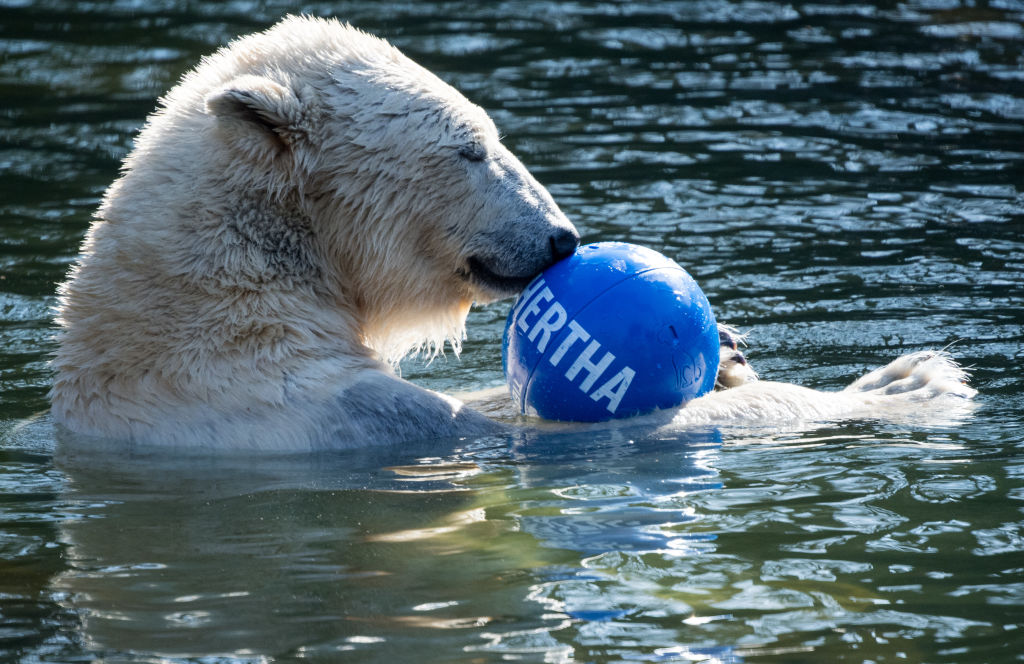
Source: Bernd von Jutrczenka/Getty Images
Scientists believe this behavior is mirrored by wild hybrids as well. By further studying Tips and Taps, researchers are hoping to gain more insight into the mysterious personalities of wild hybrids.
Lack of Polar Bear Hybrids in the Wild
Scientists are still trying to figure out why there are so few hybrid polar bears in the wild. One explanation is that female grizzlies tend to stay in their territories while males go off in search of food, making it difficult for them to meet. Additionally, male polar bears are often hunted more than females, depleting their population
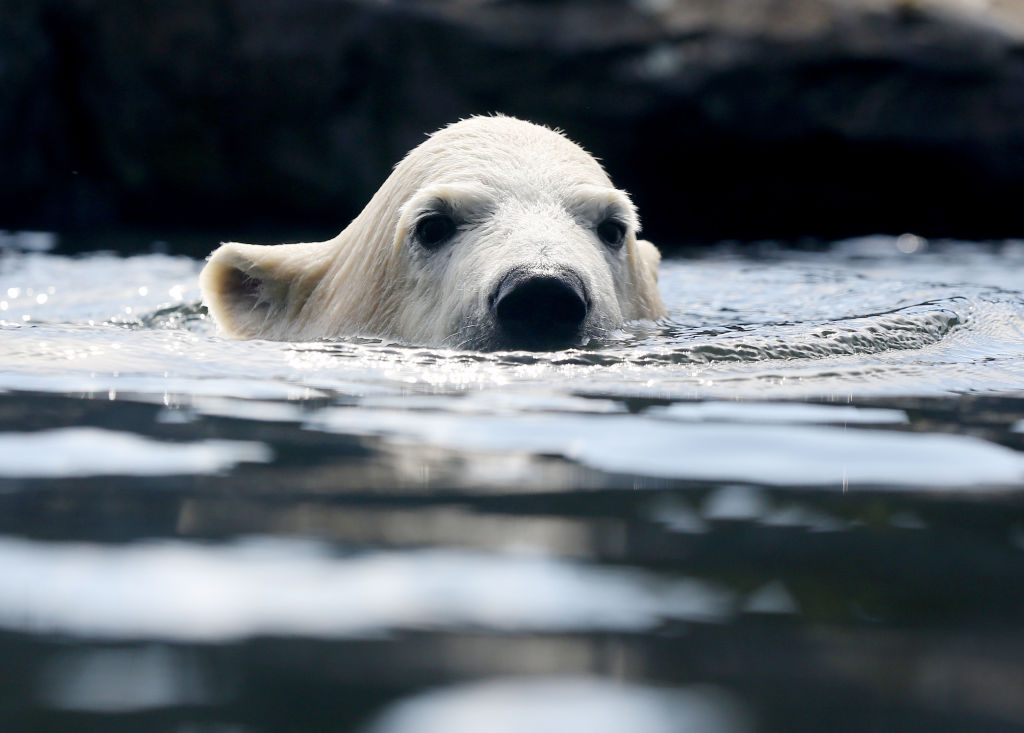
Source: Roland Weihrauch/Getty Images
All of this could explain why the lone hybrid bear 10960 might not have had any other options in her area. With more research into the matter, we might be able to uncover the mystery of polar bear hybrids.
Distinctions Between Pizzly and Grolar Bears
From the icy tundra of the Arctic to the warm forests of the Rockies, nature has blessed us with this unique hybrid bear. Also known as a “grizzlar,” it usually has a pizzly mother, making it more grizzly than polar bear.
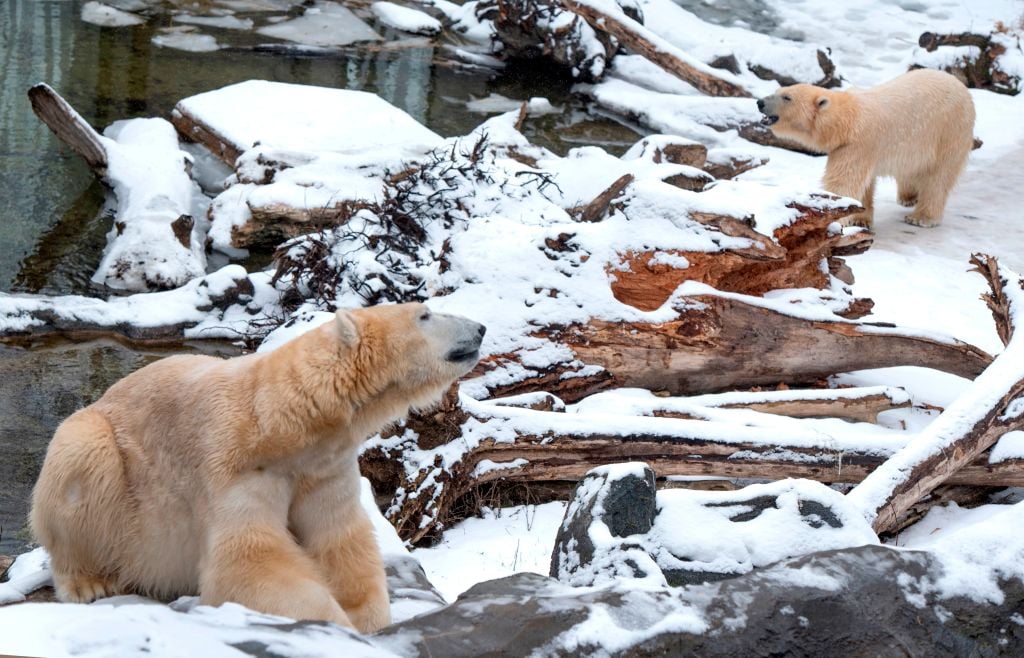
Source: Joe Klamar/Getty Images
The name ‘pizzly’ is the most commonly used, although some hybrids are given the name ‘grolar’ instead, depending on the amount of grizzly in them. These hybrids truly take after their parents, and are a remarkable example of the wonders of nature!
Showcasing Aggression Uncharacteristic of Both Parents
Tips and Taps showed that hybrids can be more aggressive than either parent. While polar bears are typically seen as more aggressive than grizzlies, the hybrid’s temperament is often worse than both species.
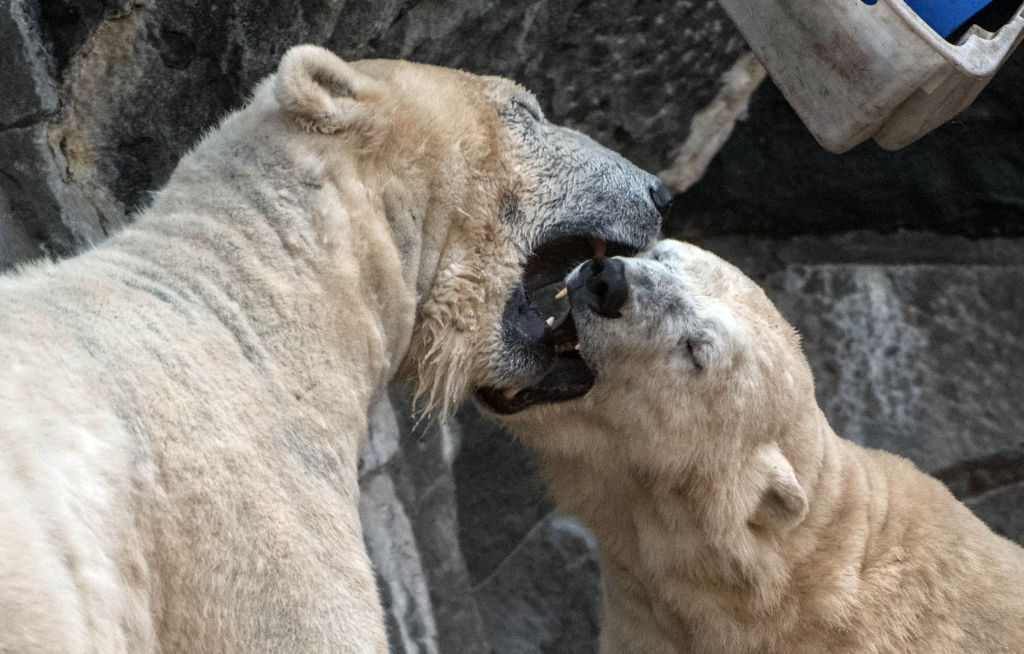
Source: Paul Zinken/Getty Images
Pat Epakohak, a hunter from David’s community, noted, “The polar bear will try to get away. There is more danger with a hybrid.” The danger posed by these hybrids is a stark reminder of the importance of respecting these wild animals.
What Should Be Done With the Hybrid Species in Victoria Island?
Residents of David’s community were in a heated debate over what to do with the recently discovered hybrid species on Victoria Island. Some wanted to hunt the grizzlies and hybrids off the island and others wanted to leave them be.
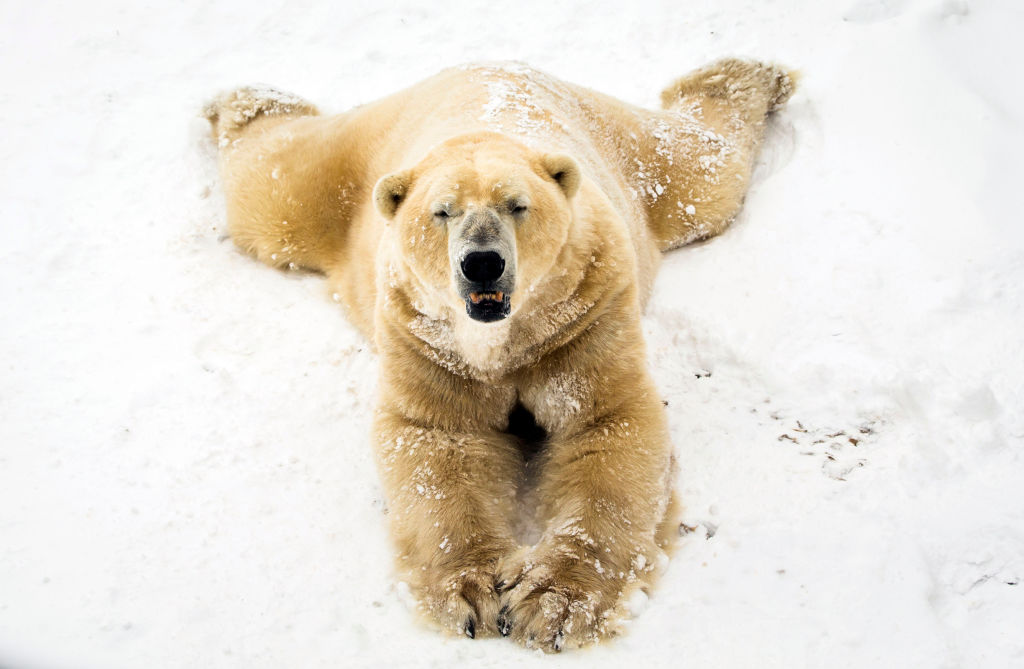
Source: Danny Lawson/Getty Images
While a few thought the hybrids could be a great tourist attraction, others weren’t as convinced. With mixed feelings on the issue, residents had to decide what was ultimately best for the island.
